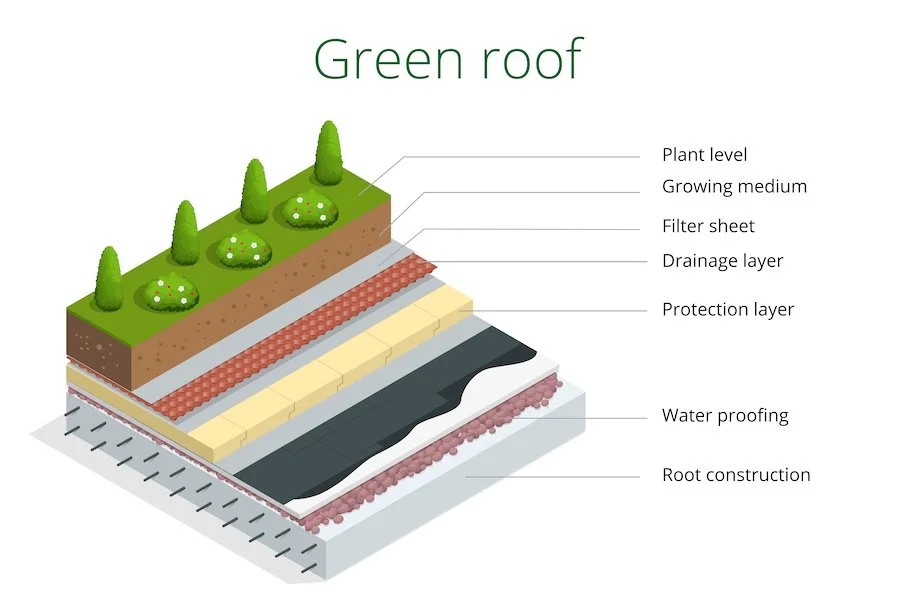Green roofs or also commonly known as living roofs, are becoming more and more popular in the urban environment. This is due to their economic and environmental benefits, as well as the added bonus of creating a garden space for properties with little outdoor area. Land is a valuable asset in cities and is commonly utilised to its maximum capacity.
Basic elements of a green roof
1. Reduces stormwater runoff
A green roof acts as a sustainable drainage system (SUD), helping to absorb and retain water. This provides an effective strategy for reducing water runoff in urban environments.
How does it work? A green roof absorbs rainwater in the plants, substrate and drainage layer. Some green roof systems can store rainwater for up to 2 months. It is then used by the green roof plants and released gradually into the atmosphere through evaporation. By delaying the discharge of rainwater to the drainage system this stabilises the groundwater level and reduces peak load on the drainage/sewage system, thus reducing the risk of flooding!
2. Saves energy
A green roof acts as an insulator, meaning it ensures less energy is lost from the building it protects. Why is this good? Because in winter, less energy is needed to heat the building or a room and in the summertime it stays cooler for longer.
Plants absorb sunlight, 50% is absorbed and 30% is reflected, this helps to create a cooler climate. For the indoor climate this means that the air conditioning doesn’t have to work so hard, which equals energy savings! Additionally, because the green roof does insulate the building and increases the roofs lifespan it is likely that the property value will increase.
Because the green roof saves energy it can also help solar panels perform more efficiently. At temperatures above 25 degrees, solar panels cease working efficiently. Due to the cooling effects of a green roof, these heightened temperatures are exceeded less often, therefore reducing disruption of the solar panel’s optimal performance.
3. Encourages biodiversity in the city
A green roof can be made up of a range of plants, from a standard green turf to a bed of wildflowers. These green roofs can be applied to all different types of real estate such as offices, homes and construction.The Sedum, herbs, grasses and plants that are included in the green roof promote the habitat of birds, butterflies and insects especially in the city environment which has limited greenery.
Declining bee populations has been widely covered in the news. It is a pressing issue worldwide as one in three bites of food that we eat relies on bee pollination. A key factor which is affecting bees worldwide is increasing urban development, as people move to the cities. Cities concrete and asphalt buildings are not an ideal habitat for bees and other pollinating animals. Because of this, bees habitat and foraging opportunities become smaller and more distant from each other. This is where a green roof can help. The green roof can be a home to many pollinators and the opportunity to add in other aspects arises. Some green roofs incorporate beehives, bug hotels, and birdbaths. An example is here in London, where Bee Midtown have a series of Beehives on their members roofs.
Added bonus, they also make the roof more habitable for the occupants to use.
4. Purifies air
Lack of plants in urban areas leads to a concentration in polluted air. Due to high property value in the city, limited space is available for plants and nature to take a foothold. The plants chosen for the green roof filter particulate matter from the air and convert CO2 into oxygen, therefore it helps to combat air pollution. Changing one roof to a green roof in a city may have limited impact but if green roofs became an accepted part of building practice the impact on air quality in cities could be substantial.
5. Extends the lifespan of your roof
One of the most extreme benefits of the green roof is its ability to protect the roof from the outdoor weather. It helps protect the roof against heat, sunlight, UV radiation, extreme hail, wind and rain. Research shows that the lifespan of a roof can be extended by 20 to 30 years with the addition of a sedum layer. You will recoup the investment in your green roof within 8 to 21 years.
Green Roof Disc
Penarth Parklet Green Roof








